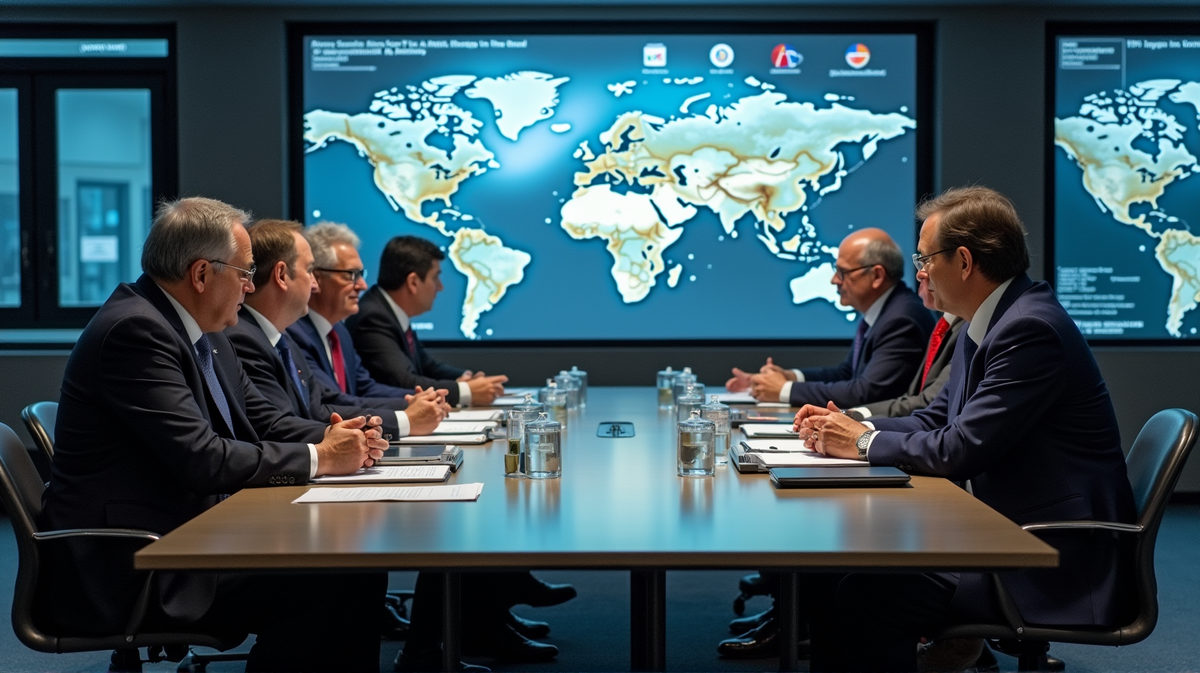EU Ministers Eye Joint Defence Fund to Strengthen Security Amid Rising Tensions
European Union ministers are exploring a joint defence fund to bolster security, amid concerns over reliance on the U.S. and potential threats.

The European Union is taking bold steps towards reinforcing its defense capabilities with a proposal for a joint defence fund. The idea, which piqued the interest of EU finance ministers during their recent meeting, aims to fortify Europe’s stance amidst potential geopolitical threats and reduce dependency on the United States for military support.
The Bruegel Proposal: A New Dawn for European Defence
At the core of this initiative is a concept devised by the Bruegel think tank—an intergovernmental fund that could bring together EU and non-EU countries like Britain, Norway, and Canada. This European Defence Mechanism aims to streamline the acquisition and ownership of expensive defense equipment, effectively pooling resources and reducing individual nation debts.
The proposal is a strategic move to create a more integrated European defense framework, involving non-EU allies in a collective security strategy. As stated by Polish Finance Minister Andrzej Domanski, this integration could reshape the continent’s security dynamics significantly.
Existing Options and New Possibilities
While the Bruegel paper has garnered enthusiasm, countries like France and Germany stress the importance of evaluating current financial instruments such as the European Investment Bank and the European Defence Fund. Under the ongoing ReArm Europe plan, an 800 billion-euro boost in military spending is projected, focusing on loosening fiscal constraints and facilitating joint borrowing for large defense initiatives.
The existing framework aims to enhance military expenditure efficiently. However, the comprehensive scope of the new fund promises a vast potential to revolutionize defense procurement and interoperability within the EU. According to Reuters, the success of these initiatives could set a precedent for unprecedented European cooperation.
Challenges and Strategic Enablers
Central to the Bruegel proposal is its focus on “strategic enablers” like advanced weapon systems, strategic transport, and logistics—a domain traditionally reliant on US capabilities. The diversity in current EU military stocks, ranging from various tank models to seven types of infantry fighting vehicles, underscores the urgent need for market rationalization.
Consolidating production under one European defense market could not only lower costs but also amplify Europe’s defense capabilities. Such a transformation would require substantial collaboration across member states and critical engagement with allied nations.
Spain’s Special Purpose Vehicle Proposal
Adding another layer to the discussions, Spain proposes a special purpose vehicle, designed to manage contributions from EU and non-EU members and issue joint European debt. This vehicle would interface with the European Stability Mechanism to enhance financial stability and resource allocation corresponding to emergent threats.
Strategic Solidarity and Future Outlook
The EU’s border nations, especially those neighboring Russia and Belarus, stand at a heightened risk and have emphasized the need for increased European solidarity in defense. As articulated by Spanish Finance Minister Carlos Cuerpo, a collective investment in defense is not just a safety net but a shared European public interest.
The convergence towards such a joint initiative indicates a significant shift in European defense policies, driven by current geopolitical tensions. As Europe strives for resilience and self-sufficiency, the proposed strategies embody a pivotal chapter in its quest for sustained security and economic security.





